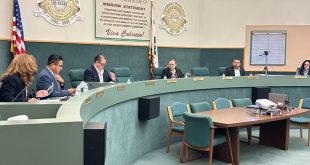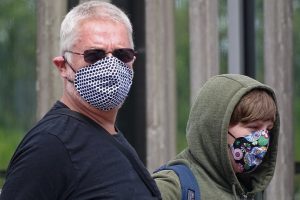The so-called ‘new normal’ is a term or a media expression that we constantly read or hear due to the current pandemic, however, it is not the first time that it has been used to explain “reality” in a certain way. Moreover, it seems important to me to return to some opinions about it as an attempt to glimpse its implications.
If we write in an internet search engine: concept of new normality, we will find articles and notes that have been published in recent months. In some, it is mentioned that there are records from the second decade of the 20th century, but it was not popularized until 2008, after the world economic crisis, and it was also used after 9/11 in the United States.
From a linguistic point of view, this phrase is considered by some as an oxymoron due to the contradiction of what normality and novelty mean; other people defend it and point out that it explains normality that is introduced, and that it even brings some stability. However, this very intention becomes gruesome when everything around is constantly changing and ambivalent.
Our place in the world
The sociologist, economist, writer, and urban planner Saskia Sassen, explained in an interview that “in order to speak of a new normal we have to recognize that something did not work” In relation to the pandemic, she mentioned, it is not the first time that an epidemiological event has occurred, which invites us to think to what extent we have caused this result.
It has become more necessary to allow ourselves to reflect on the projects that many have carried out regarding the environment or nature, and those that do not respect the other presences and realities with which we cohabit in the world, says Sassen.
It is important to understand how, over the years, human beings have appropriated spaces, lands, waters, and resources in an extractive way, points out the sociologist has happened mainly in large cities, without worrying about sustainability or the repercussions of our actions or omissions, which means, the conditions that we create.
On the other hand, António Guterres, the ninth Secretary-General of the United Nations has already said that the pandemic is not only about a health crisis, but also a humanitarian crisis, a crisis of employment and development.
According to the report “Shared responsibility, global solidarity” by the UN Secretary-General published in April, the actions that governments take should be focused on building more equitable, inclusive, and sustainable economies and societies, more resistant to pandemics and more focused on climate change among other global challenges.
In this way, he has also explained that even when the health crisis ends, we cannot continue with the usual practices that increase gas emissions and exert such pressure on wildlife and biodiversity.
In this sense, I think it is important to emphasize the obvious, the virus is a (deadly) element, which accentuated inequalities, poverty, and precariousness which are the result of poor decisions or negligence to focus on what is vital, such as guaranteeing health and a culture of prevention, provide quality education, protect formal and informal jobs, respect the environment, meet the needs of vulnerable groups.
For his part, Sassen invites to reflection, to understand this so-called new normal as an intervention, and an opportunity to recognize our fragility and interdependence and realize that we are already living in a new era that demands values such as solidarity, cooperation, and respect.
Thus, this pandemic has reminded us of the symbiotic relationship that exists between humans, animals, and the environment; being the watershed for the creation of new forms, visions, needs, different studies, and specific interests that will be developing regardless of whether we can see it or not.







